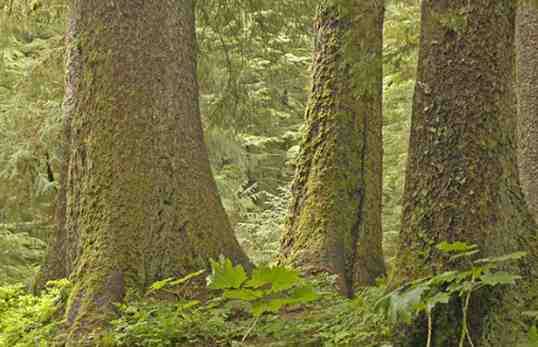In a 19-page opinion published on Wednesday, the Ninth Circuit Court of Appeals upheld the exemption of the Tongass National Forest from the 2001 Roadless Area Conservation Rule.

Various environmental organizations and Alaskan villages brought action against the USDA and the United States Forest Service for the 2003 exemption to the Roadless Rule. The state of Alaska and the Alaska Forest Association intervened as defendants.
The Plainiffs in the case moved for a summary judgement, the defendants opposed their motion and filed a cross-motion. The court approved the plaintiff’s motion and denied the defendant’s motion and the exemption was set aside in 2011.
A panel of three judges on the 9th Circuit Court of Appeals published their opinion on Wednesday. Judges Carlos T Bea and Michael Daly Hawkins decided for the defendants, Judge Margaret McKeown dissented.
In the court’s Wednesday opinion, Circuit Judge Carlos T. Bea stated, “We reverse the district court’s order because, in its 2003 Record of Decision (“ROD”), the USDA articulated a number of legitimate grounds for temporarily exempting the Tongass from the Roadless Rule. These grounds and the USDA’s reasoning in reaching its decision were neither arbitrary nor capricious.”
The USDA’s Record of Decision explained the reasoning behind the Roadless Rule Exemption in 2003, saying that it was created to “cease litigation, meet timber demand, and decrease socioeconomic hardships on isolated Alaskan communities.” The USDA had become worried about the amount of money being expended to defend a Roadless Rule that might in fact violate ANILCA. A loss on the grounds that it violated ANILCA could have resulted in a permanent injunction of the Roadless Rule. Through the use of the 2003 Record of Decision, the USDA kept the door open for future decisions further down the road.
In her dissenting opinion, Judge McKeown wrote that “In an extensive, well-reasoned decision, the district court held that the Tongass Exemption is arbitrary and capricious. I agree. Tellingly, the USDA did not appeal this decision, leaving only the State of Alaska before us now.”
She went on to say that the majority failed “to adequately probe the record for a reasoned justification for the USDA discarding its previous position—adopted only two years earlier—to apply the Roadless Rule to the Tongass. Of course agencies may change their positions over time, and over administrations, but they cannot completely reverse course lightly.”
Governor Parnell responded to Wednesday’s decision. “This is a huge victory for Alaskans and their families who depend on economic development in the Tongass,” Governor Parnell said. “Although this rule has already done irreparable harm to the timber industry and small communities in Southeast Alaska, this win will allow Alaskans to start building the industry back up. I will continue to aggressively stand up when federal agencies tread on Alaskans’ rights and Congress does not act.”
Senator Murkowski applauded the decision made Wednesday. “Striking down the Tongass’ exemption to the roadless rule was a terrible decision when it was made more than two years ago,” Murkowski said. “The people of Southeast Alaska knew it, and so did the state, which is why they acted so quickly to file an appeal to that decision. I applaud the Ninth Circuit for righting that wrong today.”
Alaska’s Senator Begich agreed, saying, “I welcome this decision overturning the roadless rule, a cookie cutter regulation from Washington that doesn’t work for Alaska. Litigation has stretched on for 13 years now, and I expect we’re not done yet. That’s why I have sponsored legislation to permanently stop this policy that just doesn’t work.”
Representative Don Young also shared his thoughts on the court’s ruling. “Today’s 9th Circuit Court of Appeals ruling is a victory for Alaska and the responsible development of our land,” said Congressman Don Young. “Our state’s geography holds unique circumstances for many of our industries, especially those engaged in timber, mineral or hydropower development, and the 2011 District Court ruling was a blow to both the economy and way of life of Southeast Alaska.
“The Roadless Rule applies a one-sized-fits all policy to areas where those polices rarely work, especially the federally land locked areas of Alaska. Southeast Alaska requires special consideration and the government should be willing to provide the flexibility for responsibly developing its infrastructure and resources.”
At roughly the size of West Virginia, the Tongass National Forest is also the largest national forest in the U.S. and home to approximately 70,000 people living in 32 communities, including the state capital, Juneau.



